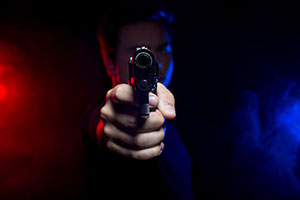The prosecution was met with strong resistance as they tried to prove the qualifications of their forensic scene analysis and recreation expert in the trial of former North Charleston officer Michael Slager for the shooting of Walter Scott.
Expert Testimony
Bill Williams, owner of a forensic consulting business, was called to testify as an expert in the field of forensic scene analysis and recreation. Williams claimed that he was qualified as an expert in his field because of his years of professional experience. Williams told the court that he had spent more than 500 hours compiling a timeline of the events leading up to the shooting of Walter Scott. Williams examined recordings from the dash camera of Slager’s patrol car, his police radio, and Feidin Santana’s eyewitness video of the shooting. Williams testified that the State Law Enforcement Division’s measurements of the site of the shooting with a laser scanner known as a FARO camera were slightly off and that he did not use them.
Williams presented his proposed testimony to Circuit Court Judge Clifton Newman outside the presence of a jury because Judge Newman had not yet decided whether Williams qualified as an expert witness. Williams provided an approximation of the order of events, as well the proximity of the two men when Slager opened fire. Williams also compiled various pieces of footage with police dispatch recordings into a video that included an animated scene of Scott running from Slager into an empty lot before their struggle.
The Defense
Slager’s defense team challenged Williams’ qualifications as an expert. They pointed to his lack of formal education or training in the field of forensics and video analysis.
Defense attorney Donald McCune questioned Williams about a previous trial in which he had testified as an expert witness, offering testimony as an expert on automobile cruise-control systems in regard to the Ford Explorer.
In 2010, the South Carolina Supreme Court overturned the ruling in a case against the Ford Motor Company. The South Carolina Supreme Court held that the trial court made a mistake by allowing Williams’ testimony, stating, “In our view, there is no evidence to support the trial court’s qualification of Williams as an expert in cruise control systems. Williams had no knowledge, skill, experience, training, or education specifically related to cruise control systems. Rather, it appears he merely studied the Explorer’s system just before trial, which he indicated in his testimony to the jury: ‘This is how I taught myself the [Explorer’s] cruise control, or speed control system.’”
Lead prosecutor Scarlett Wilson continued advocating to have Williams included as her final witness, stating that he “has skills that the common man doesn’t have” and noting the hundreds of crime and accident scenes that Williams has examined. Citing the state Supreme Court’s ruling regarding Williams’ previous testimony in the Ford case, Judge Newman questioned Wilson’s confidence in Williams, but ultimately found him fit to testify as an expert witness.
Update
In late 2016, a five-week trial ended in a mistrial due to a hung jury. A retrial is scheduled for March 1, 2017.




